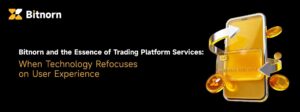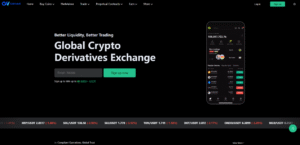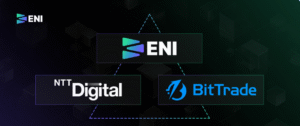
DeFi Insurance vs. Traditional Insurance: A Comparative Analysis
In recent years, decentralized finance (DeFi) has emerged as a revolutionary force in the financial industry, offering innovative solutions to various traditional financial services. One such area that has witnessed significant development is insurance. DeFi insurance presents an alternative to traditional insurance models, leveraging blockchain technology and smart contracts to provide coverage. This article aims to provide a comparative analysis of DeFi insurance and traditional insurance, exploring their features, benefits, limitations, and future prospects.
What is DeFi Insurance?
DeFi insurance refers to the provision of insurance coverage through decentralized platforms built on blockchain networks. These platforms utilize smart contracts to automate the insurance process, eliminating the need for intermediaries and centralized authorities. The policies are governed by predefined code and executed transparently on the blockchain, ensuring trust and immutability. DeFi insurance offers an open and inclusive ecosystem, enabling individuals worldwide to access insurance services without the barriers of traditional insurance systems.
Understanding Traditional Insurance
Traditional insurance operates within a centralized framework, where insurance companies act as intermediaries between policyholders and claimants. It follows a hierarchical structure, with premiums collected from policyholders used to cover potential losses. The insurance companies assess risks, set premium rates, and handle claims. This model has been prevalent for decades and has established regulations and industry standards.
Features and Benefits of DeFi Insurance
Decentralization and Transparency
DeFi insurance platforms operate on blockchain networks, which are inherently decentralized and transparent. Policies and claims are governed by smart contracts, which are visible to all participants on the blockchain. This transparency reduces the chances of fraud and allows policyholders to verify the terms and conditions of their coverage independently.
Accessibility and Global Reach
DeFi insurance opens up insurance services to a global audience. Anyone with an internet connection can access DeFi insurance platforms, regardless of their geographical location or financial background. This global reach eliminates the need for intermediaries and reduces the costs associated with traditional insurance distribution.
Lower Costs and Reduced Friction
DeFi insurance eliminates several intermediaries, such as brokers and underwriters, reducing the overall costs involved in the insurance process. Additionally, the automated nature of smart contracts streamlines policy issuance and claims settlement, minimizing paperwork and administrative delays. This results in faster and more cost-effective insurance transactions.
Advantages of Traditional Insurance
While DeFi insurance offers numerous benefits, traditional insurance models possess their own advantages that have contributed to their longevity and widespread adoption.
- Established Framework and Regulations
Traditional insurance operates within a well-defined regulatory framework. Government agencies and industry watchdogs oversee the operations of insurance companies, ensuring compliance with standards and protecting policyholders’ interests. This regulatory environment provides a sense of security and stability to individuals seeking insurance coverage.
- Stability and Security
Insurance companies are backed by financial reserves and capital requirements, which enhance their ability to pay out claims promptly. Moreover, traditional insurers often have a long-standing history and a proven track record of fulfilling their contractual obligations. This stability and security are crucial factors for individuals and businesses when selecting an insurance provider.
- Trust and Familiarity
Traditional insurance has been ingrained in society for generations, fostering trust and familiarity among consumers. Policyholders are accustomed to the traditional insurance model, making it easier for them to understand coverage terms, claims procedures, and the overall insurance landscape. This familiarity often acts as a psychological reassurance for individuals seeking insurance protection.

Risk Assessment and Claims Handling
In DeFi insurance, risk assessment and claims handling processes are automated through smart contracts. The policy terms are predefined in the smart contract code, and claims are triggered based on predetermined conditions. This reduces human involvement and ensures objective decision-making. However, vulnerabilities in smart contracts can pose risks, as they are susceptible to coding errors and security breaches. Traditional insurance companies rely on human experts to assess risks and handle claims, leveraging their expertise and experience to make informed judgments.
Risk assessment and claims handling are integral parts of insurance processes, whether in the realm of decentralized finance (DeFi) insurance or traditional insurance. These processes play a crucial role in determining policy eligibility and ensuring prompt and fair settlements. Let’s explore risk assessment and claims handling in more detail:
Risk Assessment
Risk assessment in DeFi insurance primarily relies on automated algorithms and smart contracts. These smart contracts are programmed to execute predefined rules and conditions to evaluate the eligibility of claims. The terms and conditions of insurance policies are coded into the smart contract, ensuring transparency and objectivity in the assessment process. By automating risk assessment, DeFi insurance platforms aim to eliminate human bias and provide an efficient and streamlined experience for policyholders.
Claims Handling
In DeFi insurance, claims handling is also facilitated through smart contracts. When the predetermined conditions specified in the smart contract are met, claims are automatically triggered. The automation of claims handling eliminates the need for manual evaluation and expedites the settlement process. However, it’s important to note that vulnerabilities in smart contracts can pose risks to the accuracy and fairness of claims handling. Coding errors or security breaches can potentially lead to exploitations or fraudulent claims. To mitigate these risks, robust auditing processes and stringent security measures are crucial to ensure the reliability and integrity of the claims handling system.
On the other hand, traditional insurance relies on the expertise of human professionals to assess risks and handle claims. Experienced underwriters carefully evaluate the circumstances surrounding the claim, consider policy coverage, and make informed decisions. Human involvement allows for subjective judgment based on expertise and experience. Traditional insurers have established processes and guidelines for claims handling, ensuring thorough investigations and fair settlements. The involvement of human experts enables the navigation of complex claims scenarios that may require judgment beyond predefined rules.
Challenges and Limitations
Despite the advantages offered by DeFi insurance, several challenges and limitations need to be addressed for widespread adoption and acceptance.
- Smart Contract Vulnerabilities
Smart contracts, the building blocks of DeFi insurance platforms, are prone to vulnerabilities. Coding errors or security breaches can lead to exploitation by malicious actors, resulting in financial losses for policyholders. The industry must continually improve the security measures and auditing processes to minimize such risks and enhance the resilience of DeFi insurance platforms.
- Regulatory Concerns
The regulatory landscape surrounding DeFi insurance is still evolving. As the industry gains prominence, regulators are grappling with defining the legal framework and oversight mechanisms for DeFi insurance platforms. Balancing innovation with consumer protection and preventing potential financial risks remains a challenge that needs to be addressed to foster the growth of DeFi insurance.
- Lack of Understanding and Awareness
DeFi insurance is a relatively new concept, and many individuals may not be familiar with its benefits and functionalities. Educating potential users about the advantages and risks associated with DeFi insurance is essential for increasing adoption and building trust in these platforms.
Future Outlook: Collaboration or Competition?
The future outlook for DeFi insurance and traditional insurance is expected to involve a combination of collaboration and competition. While these two models have distinct features and advantages, there is room for collaboration to harness the strengths of each approach. Integrating blockchain technology into traditional insurance processes can enhance transparency, streamline operations, and reduce costs. Collaborative efforts can also lead to the development of hybrid solutions that offer the benefits of decentralization and established regulatory frameworks. However, competition will persist as both industries strive to innovate and attract customers. This competitive landscape can drive continuous improvement and spur advancements in technology, products, and customer experiences, ultimately benefiting consumers in the insurance market.
Conclusion
DeFi insurance and traditional insurance models each offer distinct features and advantages. DeFi insurance excels in terms of decentralization, transparency, accessibility, and reduced costs, while traditional insurance provides stability, security, trust, and regulatory oversight. As the insurance industry evolves, a hybrid approach that combines the best of both worlds may emerge, offering individuals and businesses a comprehensive and diverse range of insurance options.
FAQs
1. What is DeFi insurance?
DeFi insurance refers to the provision of insurance coverage through decentralized platforms built on blockchain networks. It utilizes smart contracts to automate the insurance process and eliminate intermediaries.
2. How does traditional insurance work?
Traditional insurance operates within a centralized framework, with insurance companies acting as intermediaries between policyholders and claimants. Premiums are collected to cover potential losses, and claims are assessed and handled by human experts.
3. Are DeFi insurance platforms secure?
DeFi insurance platforms can be vulnerable to smart contract vulnerabilities and security breaches. However, the industry is continually working on improving security measures to minimize risks and enhance platform resilience.
4. Can I replace my traditional insurance with DeFi insurance?
The decision to replace traditional insurance with DeFi insurance depends on personal preferences, risk tolerance, and familiarity with the respective models. It is advisable to carefully evaluate the features, benefits, and risks of both options before making a decision.
5. What are the potential risks of using DeFi insurance?
DeFi insurance platforms carry risks associated with smart contract vulnerabilities, regulatory uncertainties, and lack of understanding. Users should exercise caution, conduct thorough research, and assess the security measures implemented by DeFi insurance platforms before participating.
I have worked in the cryptocurrency industry for over 5 years and have written numerous articles on the subject. I am well-versed in all aspects of cryptocurrencies and blockchain technology, and am an expert in the field.










